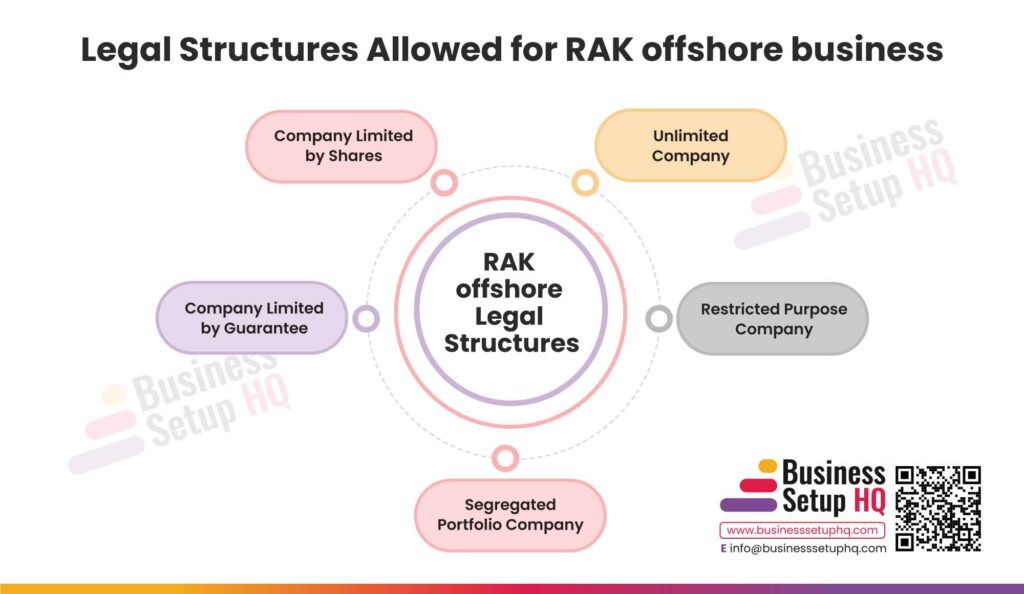Offshore Company Formation for Digital Enterprises and Internet Ventures
Offshore Company Formation for Digital Enterprises and Internet Ventures
Blog Article
Navigating the Globe of International Company: Insights on Offshore Company Formation
Offshore Company Formation presents a critical opportunity for worldwide service operations. It supplies notable benefits, such as tax optimization and boosted personal privacy. Nevertheless, the procedure is not without its difficulties. Comprehending the intricacies of governing requirements and numerous jurisdictions is important. As organizations take into consideration these options, the steps involved can greatly impact their long-term success. What are the vital factors that can cause efficient offshore monitoring?
Recognizing Offshore Business: Meaning and Objective
Offshore business have actually come to be a prime focus in global service conversations due to their special lawful and economic frameworks. These entities are established in territories outside of the owner's nation of house, often with beneficial governing atmospheres. Typically, overseas business offer different purposes, such as asset protection, tax optimization, and improved personal privacy. They can operate in numerous sectors consisting of financing, profession, and innovation, offering adaptability for international operations.The defining characteristic of an overseas Company is its capability to conduct service worldwide while taking advantage of minimized tax obligation responsibilities and governing concerns. This framework appeals to capitalists and entrepreneurs seeking to diversify their profiles and handle threats effectively. Additionally, lots of overseas territories supply rewards to attract international investment, causing an increase in the Formation of these companies. Recognizing the definition and objective of overseas business is essential for navigating through the complexities of international commerce and funding circulation.
Key Advantages of Offshore Company Formation
The Formation of an offshore Company supplies a number of compelling advantages that draw in entrepreneurs and capitalists alike. Among the primary advantages is tax obligation optimization; lots of jurisdictions supply positive tax prices or exceptions, permitting organizations to make the most of earnings. Furthermore, overseas firms frequently take pleasure in better discretion, as many jurisdictions have stringent privacy laws protecting the identifications of Company proprietors and shareholders.Another significant benefit is property protection. Offshore entities can safeguard properties from political instability and financial declines in the owner's home nation. These business can promote global trade, giving easy access to international markets and streamlining cross-border transactions.The flexibility in business framework also allures to business owners, as offshore firms can be tailored to satisfy specific operational needs. Generally, the tactical Formation of an overseas Company can bring about enhanced monetary security, functional effectiveness, and a robust international existence.

Usual Obstacles in Developing Offshore Entities
Establishing overseas entities provides a number of challenges that services have to navigate. Trick issues consist of governing compliance, which can differ significantly throughout jurisdictions, and the influence of social differences on procedures. Furthermore, organizations need to think about the costs and dangers connected with maintaining an overseas visibility, which can affect general feasibility.
Regulative Conformity Issues
Navigating governing compliance concerns postures substantial obstacles for services when they look for to establish offshore entities. Each jurisdiction has its very own set of legislations and regulations, which can differ commonly and may be difficult to navigate. Firms frequently deal with difficulties pertaining to tax conformity, anti-money laundering guidelines, and reporting requirements. Furthermore, changes in international tax laws can produce uncertainty, making it essential for organizations to remain upgraded on compliance responsibilities. Failure to comply with these regulations can cause serious penalties, consisting of fines and reputational damages. Engaging and recognizing the legal framework with local specialists is important for effective offshore operations, guaranteeing that businesses can operate within the boundaries of the law while optimizing their international technique.
Cultural Distinctions Impact

Cost Considerations and Dangers
Guiding through the financial landscape of overseas entity Formation presents various cost considerations and intrinsic threats. First setup prices frequently consist of lawful fees, enrollment costs, and compliance costs, which can accumulate significantly. In addition, ongoing upkeep expenditures such as yearly costs and accountancy solutions must be factored in. Changing governing settings in different territories pose dangers, potentially leading to legal issues or unanticipated expenses. Companies may also encounter obstacles associated with taxes, financial, and reputational problems, which can impact success and operational efficiency. Possible entrepreneurs need to conduct complete due persistance and economic forecasting to reduce these dangers and ensure sustainable development. Comprehending these price factors to consider is essential for successful offshore business ventures.
Steps to Establish an Offshore Company
Developing an offshore Company involves several important steps that need cautious consideration. Trick variables include ensuring and selecting the ideal territory conformity with local laws, along with collecting needed paperwork. Recognizing these aspects is crucial for a successful overseas organization arrangement.
Selecting the Right Territory
Picking the appropriate jurisdiction is vital for anybody aiming to establish an overseas Company, as it can considerably affect business's lawful obligations, tax responsibilities, and operational simplicity. Numerous aspects must be taken into consideration, including the political stability, regulative environment, and tax motivations used by prospective territories. Popular selections usually include countries with favorable tax regimes, such as the British Virgin Islands or Recommended Site Cayman Islands, because of their reduced or absolutely no tax rates. Furthermore, the ease of doing service and the reputation of the territory can affect financier confidence and market access. Inevitably, a knowledgeable choice based upon extensive study will certainly guarantee the overseas Company is placed for lasting success and compliance with international requirements.
Needed Documentation and Compliance
When setting up an offshore Company, recognizing the required documents and compliance demands is vital to assure a smooth process. Secret papers commonly consist of a certification of consolidation, a memorandum and short articles of organization, and proof of identity for investors and supervisors. Some territories might need added info, such as organization strategies or bank recommendations. Compliance with regional legislations is essential, which frequently entails designating a registered agent and maintaining an authorized workplace. Routine coverage and adherence to tax obligation responsibilities have to also be taken into consideration. Failure to adhere to these requirements can cause penalties or perhaps dissolution of the Company. Comprehensive preparation and assessment with legal experts can assist browse these complexities effectively.
Picking the Right Jurisdiction for Your Offshore Company
How can one identify one of the most suitable jurisdiction for an offshore Company? Selecting the right territory needs careful factor to consider of several elements. The legal and tax atmosphere plays an important role; jurisdictions with positive tax obligation regimens may improve company success. Additionally, the political stability and financial climate of an area can affect long-term company viability.Another vital element is the schedule of financial solutions and financial infrastructure, which promote smooth operations. Possible business proprietors should likewise think about the ease of working, consisting of the speed of registration and the quality of regulations.Furthermore, language barriers and social distinctions can impact procedures; consequently, lining up with a jurisdiction that lines up with company objectives and individual convenience is important. Eventually, thorough study and specialist guidance can assist business owners in making an informed choice that straightens with their critical objectives.
Conformity and Governing Factors To Consider

Ideal Practices for Handling an Offshore Business
Taking care of an offshore organization requires tactical planning and precise execution to enhance efficiency and reduce threats. Developing a durable compliance framework is essential to navigate varying policies across jurisdictions. Regular audits and risk assessments aid recognize prospective vulnerabilities.Moreover, these details leveraging local proficiency via collaborations with local experts can boost functional effectiveness and social understanding. Utilizing modern technology, such as cloud-based management systems, enhances interaction and information administration, making it possible for better decision-making. In addition, keeping transparent financial records and making sure timely tax filings are important to copyright the Company's stability. Investing in staff training and growth promotes a skilled workforce, advertising development and adaptability.Finally, establishing clear performance metrics and essential efficiency indications (KPIs) aids analyze organization progress and notify critical changes. By sticking to these finest techniques, companies can efficiently manage their overseas operations, making certain lasting success and sustainability in a competitive international marketplace.
Regularly Asked Concerns
What Is the Price of Forming an Offshore Company?
The price of forming an offshore Company differs widely relying on jurisdiction, legal requirements, and solutions needed. Typically, costs can range from a couple of hundred to numerous thousand bucks, including enrollment, site here conformity, and annual charges.
How Long Does It Require To Establish an Offshore Entity?
The moment required to establish an overseas entity differs considerably, generally varying from a few days to a number of weeks (offshore company formation). Aspects influencing this period consist of jurisdiction, called for documents, and the effectiveness of the company entailed
Can Individuals Type Offshore Companies Without a Company Partner?
Individuals can undoubtedly form offshore business without an organization companion. Lots of territories enable single-member entities, empowering entrepreneurs to develop and manage their services independently, while still benefiting from potential tax obligation advantages and lawful defenses.
Exist Any Type Of Tax Advantages for Foreign Investors?

What Sort Of Organizations Frequently Use Offshore Firms?
Offshore business are frequently made use of by numerous markets, including finance, shopping, and innovation. These entities usually serve functions such as asset protection, tax obligation optimization, and privacy, interesting both international corporations and private business owners. Offshore firms have come to be a focal point in worldwide service discussions due to their unique legal and economic frameworks. They can operate in numerous sectors including financing, trade, and technology, supplying adaptability for international operations.The specifying attribute of an overseas Company is its capability to carry out business internationally while profiting from minimized tax obligations and regulative burdens. Furthermore, overseas business often enjoy greater discretion, as numerous jurisdictions have rigid personal privacy laws shielding the identifications of Company owners and shareholders.Another significant advantage is asset defense. These firms can assist in worldwide profession, giving very easy accessibility to worldwide markets and simplifying cross-border transactions.The adaptability in company structure also allures to service owners, as offshore firms can be tailored to meet specific operational demands. Selecting the best jurisdiction is critical for any individual looking to establish up an overseas Company, as it can greatly impact the company's lawful commitments, tax obligation obligations, and operational convenience.
Report this page